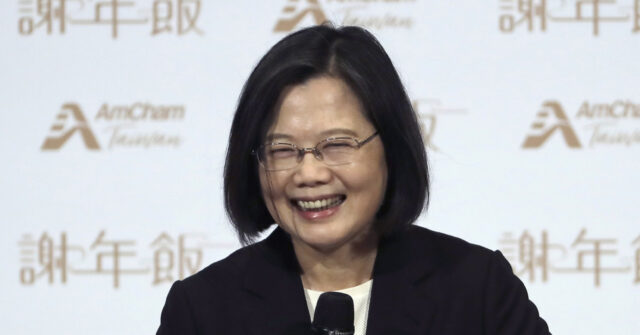The British Foreign Office recently blocked a planned visit by former Taiwanese President Tsai Ing-wen, prior to her upcoming European tour, reportedly due to concerns over potential repercussions for an anticipated goodwill visit to China by a British minister. Tsai, who served as the President of Taiwan until May 2023, initially intended to include the United Kingdom as part of her tour but was excluded following the Foreign, Commonwealth, and Development Office’s (FCDO) request to delay her visit. A source involved in the planning revealed to The Guardian that the FCDO communicated through the Taiwanese representative in the UK that Tsai’s presence would jeopardize the minister’s visit to China, which is seen as crucial for enhancing bilateral relations.
David Lammy, the new British Foreign Minister, is scheduled to make the visit to China next week, aimed at improving ties with the Asian giant. The relationship between the UK and China, once characterized by a “golden age” during the David Cameron administration, has become more cautious in recent years. Subsequent Conservative governments have adopted a more skeptical stance toward engagement with Beijing, particularly in light of emerging geopolitical tensions and concerns over China’s influence. This shift reflects growing recognition of the complexities in UK-China relations and the need for a careful balancing act.
The plans for Tsai Ing-wen’s visit were initiated by the British-Taiwanese all-party parliamentary group, indicating a notable interest among British parliamentarians to engage with Taiwan. However, the government intervened to prevent the visit from proceeding, citing diplomatic sensitivities as the reason. While the UK has not officially recognized Taiwan as a sovereign state since the 1950s and withdrew its diplomatic office in the 1970s, it continues to engage economically, with substantial trade relations worth billions of pounds. This discrepancy raises questions about the UK’s commitment to democratic values in its foreign policy.
The rationale behind the UK government’s decision to defer Tsai’s visit points to a broader pattern of deference to China, especially as the UK seeks to establish a more positive rapport with the Chinese government amidst ongoing geopolitical tensions. This comes in the wake of accusations against China for a significant cyber-attack that targeted British government defense ministry computers, highlighting security concerns related to a potential and growing assertiveness from Beijing. The interplay between economic interests and national security is becoming increasingly complicated for the UK.
Moreover, there have been serious allegations regarding China’s influence operations within British politics, including efforts to identify and support emerging politicians. A high-profile case involving a Labour MP was revealed, where a Chinese lawyer closely associated with the MP was flagged as a security threat by British intelligence. These incidents have raised alarms about foreign interference in domestic politics, further complicating the UK’s stance toward China and Taiwan and necessitating a more robust response to safeguard national security.
As the UK navigates its complex relationship with China, the situation surrounding Tsai Ing-wen’s blocked visit underscores the challenges and contradictions inherent in its foreign policy. The government’s actions reflect a cautious approach aimed at preserving diplomatic channels with Beijing while balancing engagement with democratically aligned partners like Taiwan. Moving forward, the UK may need to reassess its strategies—balancing economic interests with its commitments to democratic values and national security, as fallout from international relations continues to shape domestic policy and political landscapes.

